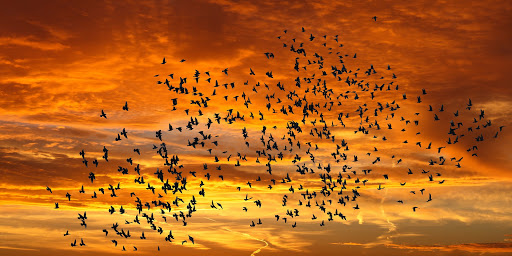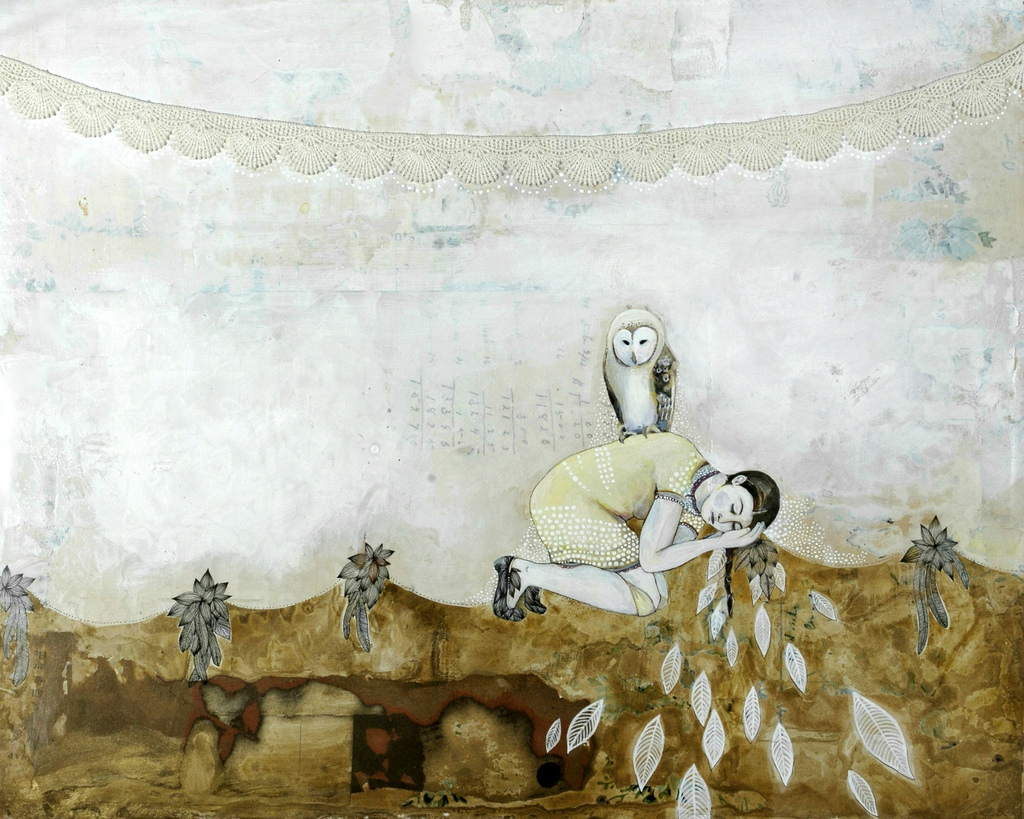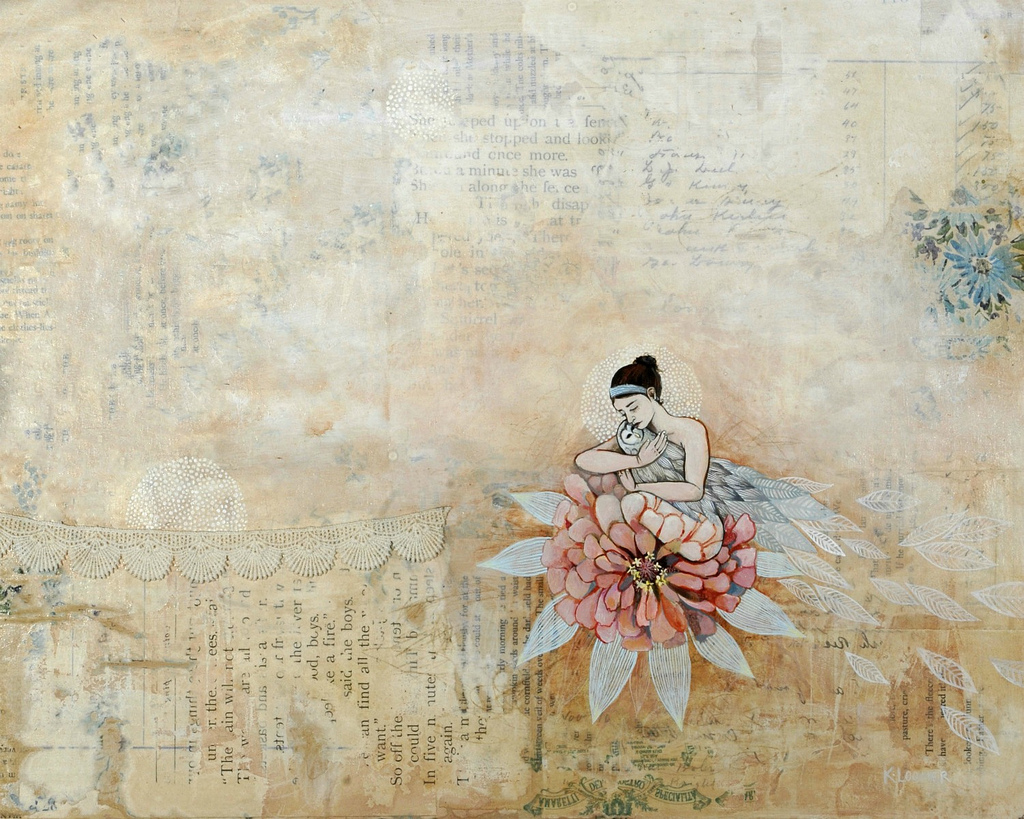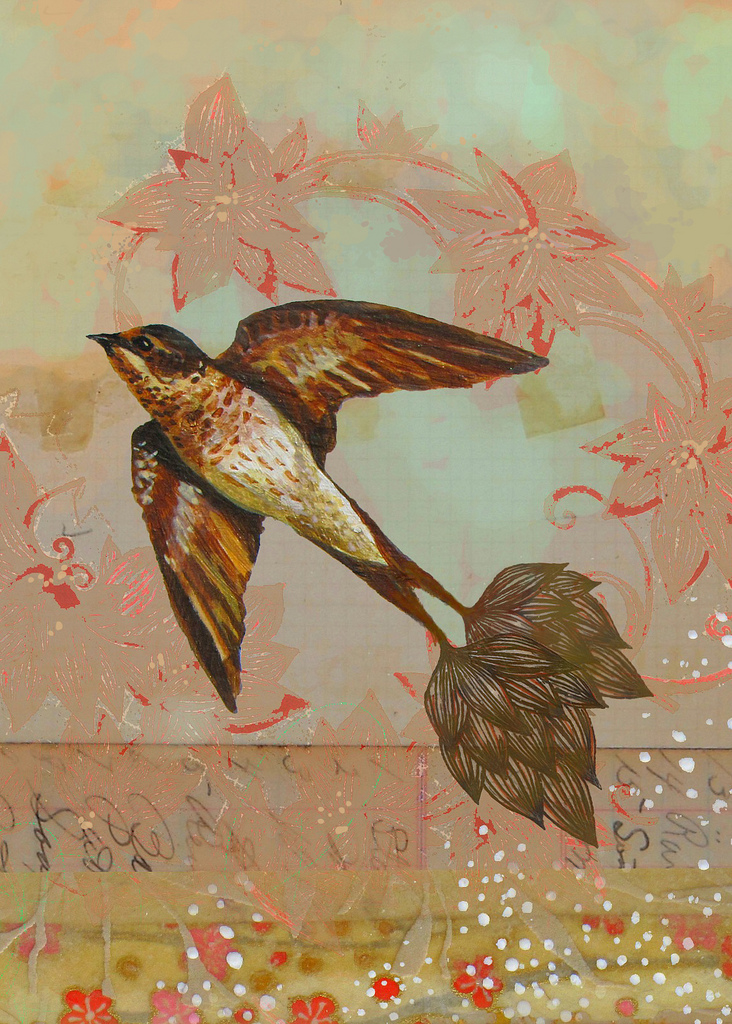Trauma and Regeneration
Trauma and Regeneration
Soul Shivers launched at the Stoa in February and March of 2021. We held a series of four dialogues framed around earth regeneration, breaking the conversations down into four critical themes which were ancestry, trauma, connection to place, and peace. You can view the series here. And the first dialogue in Kosmos, here.
Soul Shivers captures seldom heard stories from women around the world working on earth regeneration in different ways. Our dialogues are intimate, translocally interconnected, and impactful. In a special collaboration with Kosmos, we are offering edited transcripts of these conversations.
Luea Ritter:
Welcome everyone. Today we dive into the field of personal, intergenerational, and collective trauma. Before we begin our dialogue, we’d like to read a short poem.
Freya Yost:
The poem is called Every Morning by Mary Oliver.
I read the papers,
I unfold them and examine them in the sunlight.
The way the red mortars, in photographs,
arc down into the neighborhoods
like stars, the way death
combs everything into gray rubble before
the camera moves on. What
dark part of my soul
shivers: you don’t want to know more
about this. And then: you don’t know anything
unless you do. How the sleepers
wake and run to the cellars,
how the children scream, their tongues
trying to swim away–
how the morning itself appears
like a slow white rose
while the figures climb over the bubbled thresholds,
move among the smashed cars, the streets
where the clanging ambulances won’t
stop all day–death and death, messy death–
death is history, death is habit–
how sometimes the camera pauses while a family
counts itself, and all of them are alive,
their mouths dry caves of wordlessness
in the smudged moons of their faces,
a craziness we have so far no name for–
all this I read in the papers,
in the sunlight,
I read with my cold, sharp eyes.
Luea Ritter:
Thank you, Freya. I mentioned intergenerational trauma, meaning from within our family lineages and handed down, informing future generations, and then there is also the collective trauma of tribes, communities, whole cultures, and societies. We strongly believe that no matter where we are on this planet, and no matter what tribe or culture we belong to, we are all informed by trauma dynamics.
Even if we have not experienced big traumas in our lifetime, such as war or famine, we all are descendants of people who have. Not to compare them with each other, of course, but just to acknowledge this. We live in cultures and societies that are built on trauma-informed structures.
Peter Levine defines trauma as something that happens to us faster than we can process it. So in a way we become traumatized when our ability to respond to a perceived threat is in some ways overwhelmed. Everyone reacts differently to trauma, even in shared traumatic events. One person may be fine while the other one gets trapped in a cycle of anxiety. It’s very important to know when we approach healing that it’s actually something to work through in our bodies.
Knowing that trauma is a physiological reaction, we can approach regeneration as something that is the collaboration between the energetic, social, and ecological layers of life. We could say that regeneration is needed as a response to how we have lived with century-old trauma-informed dynamics and systems. Humanity itself has to create the preconditions for working through the trauma layers and unfreeze the stuck energy that is in our systems and societies.
Now I would love to open with a question. How have you as an individual, and you with your community or your peers, danced with these trauma-informed dynamics and what is the first story that comes up when you hear that word?
Alexandra Gavilano:
The first image that comes to mind is soil. How intensely managed soil is traumatized and it needs to recuperate. A lot of people say we’re destroying our planet. We’re not destroying the planet because the planet will be here long after us. We are really destroying the environment that is good for our species and many others. I feel we need to expand the trauma dimensions to the more than human.
Amber Tamm:
Growing up I didn’t understand that some of the things I was enduring were traumatic and that they were informed by a collective trauma. I really had no clue. But I easily realized that trauma is a superpower once I went through something very massive, as in my father murdering my mom, and then I was able to see how years of this can lead to more of it.
Going through my own personal trauma brought me back to soil and honoring, like Alexandra just said, the trauma of the soil, but through people first. I think I had to really recognize what land I was on, how my ancestors were brought here, what the land is holding people-wise, bones-wise, fertilizer-wise, trauma-wise, and then getting to a Mama Earth perspective. I have always felt like trauma is some weird sort of sight. It helps you understand others. It helps you understand interconnectedness as a whole.
Jane Ruka:
Because I’m older than you, I always hesitate to speak first. From my vantage, intergenerational trauma is very close, and it can come in the form of anything that disturbs your community, and that intergenerational trauma could come from another nation, superimposing themselves onto you or taking you from your community and replanting you somewhere else as a totally different self-image that you had or your ancestors had for you.
I think it’s the destruction that the original trauma intergenerationally is condoned in some manner by the communities who can’t retaliate to it, and if they do, huge consequences are exerted on ancestral people, and Amber represents that end line. Alexandra to some extent as well. Naomi is walking through it at this present time in Kenya. Luea and Freya, just because I don’t mention you, you are included in this for your ancestral traumas because we all know the history of Europe, and it has consequences from the original trauma down to personally my generation of grandchildren.
You do not ever revert back to where you were and your ancestors were originally. You must regenerate yourself in the place where you are. If that involves changing your country or community, then you are honor-bound to do that for your next generations. Your next generation of children, whoever is in your lineage of blood, will see that you’ve done it. Being an example is very important. People need to see that you can achieve, and intergenerational trauma includes trauma to the surroundings land.
Every being and sentient creature has a right to be there and then suddenly you’re all devastated and nobody has a right except the people coming to utilize all the areas that they can in order to increase financial gain. You need to first regain your own balance, and then you must look at your surroundings.
The whole picture of regeneration is so important, but it begins with you and your understanding. I’m not saying that we can dismiss our intergenerational traumas. I’m saying that we need to view them in all honesty as to how you can improve them existing where you are.
I am a very loud activist. I oppose everything that I know from my long travel through life as not appropriate to the people growing up that belong to my ewe, my people. We all have personal traumas and some of them are more devastating. You cannot get more trauma than being the child of a mother whose father has caused her life to end, and I do send out my heartfelt grief of your situation that you have so bravely come out of, Amber.
I send to you my best wishes, dear, for your ceasing the generational trauma so that your children don’t receive what you’re living through. God bless you in the form of blessing of my culture. I send that to you, Amber, so that your children do not get traumatized. Give them the life of hope, my dear.
Freya Yost:
I’ve come to feel that one of the most powerful forms of ‘activism’ happens at a family scale. I’ve also had certain experiences in nature that are hard to name but that over time I have come to understand as bringing me closer to my wholeness or higher self. These experiences imply to me that one of the great traumas is our separation from the land. It feels right, therefore, that regeneration involves entering back into a relationship with each other, with the land. As I began to think along those lines, I noticed myself becoming more sensitive to the world. As I opened up to the possibility of more relationships around me, I became increasingly receptive to the immeasurable beauty that was accessible to me at any moment. On the other hand, I couldn’t read the newspaper anymore without falling into depression. How do you experience this tension, that increased connection with life leads to more beauty but also more pain?
Amber Tamm:
This is something I am still figuring out. For so long I just was going every day. And now I’m recognizing that I should have slowed down a long time ago. I should have been looking into these crevices within myself, but instead I was like, “I need to save money for my siblings, and I need to focus on my career,” and it’s only now that I realize that I chose a career over myself. I chose regenerative agriculture over regenerative Amber. If you don’t choose yourself you can’t be helpful. One thing me and my partner say to each other is we can’t fight a food apartheid and be malnourished people.
Luea Ritter:
I’m curious to hear what are the community resources we draw upon when these dynamics show up?
Jane Ruka:
I hear you all saying you go to nature, you go to the trees, you go to the soil when these tensions and pressures are upon you. Our belief system is that we are related to everything that has life. They are elder brothers and sisters, grandmothers and grandfathers. Some of them are centuries old, our trees. Now, in those centuries, there are methods of surviving, but because we’ve lived 60, 70, 52 years, we totally are unaware, most of us, that we have seniority growing in our own gardens.
In order to access those beautiful brothers and sisters, ancient as they are, all we have to do is let them know we are traumatized. Go to them. Tell them your anxieties. If you have a bird flying through into your property and you are heart-bound with trauma, it’s a life force that’s learned through its generational genealogy how to survive. It’s your best friend at the time.
Everything belongs to me that belongs to nature. It’s my given right as the youngest child on this planet to ask for help from them. I don’t just sit and do silent help. I tell them my traumas. I cry to them, and the moment I’ve cried for my heartfelt trauma, I know that I’m relieved because they’ve picked it up. All those root systems are going to hear my cry to my elders.
It’s not going to be very long before your relief is felt because your elder brothers and sisters are taking it, and remember, when it’s their turn to have trauma, you stand up and be the biggest and loudest activists for their protection, not because they require it, but because your heartfelt knowledge tells you they save humans and what are some parts of the humanity destroying them for?
Go out and tell nature, “This is my saddest trauma. I need you to help me,” and they respond because they have senses just as we do. I give you that coded law from my culture is speaking and gifting of words, and I hope it helps you because you already all touch it. Multiply us by the thousands of people who get relief. We’ve got a force that can defend our brothers and sisters because they defend us if we talk to them. Speaking in your mind is all right, but verbalizing it means the ones in the distance catch it on the wind, and they can hear it.
So, it’s not just the few that you’re talking to as you’re walking. It’s to the brothers and sisters that have been caught by the god of the winds. Tāwhirimātea is the god of winds and takes your sorrow and gives it to the brothers and sisters who are older than us. So, thank you.
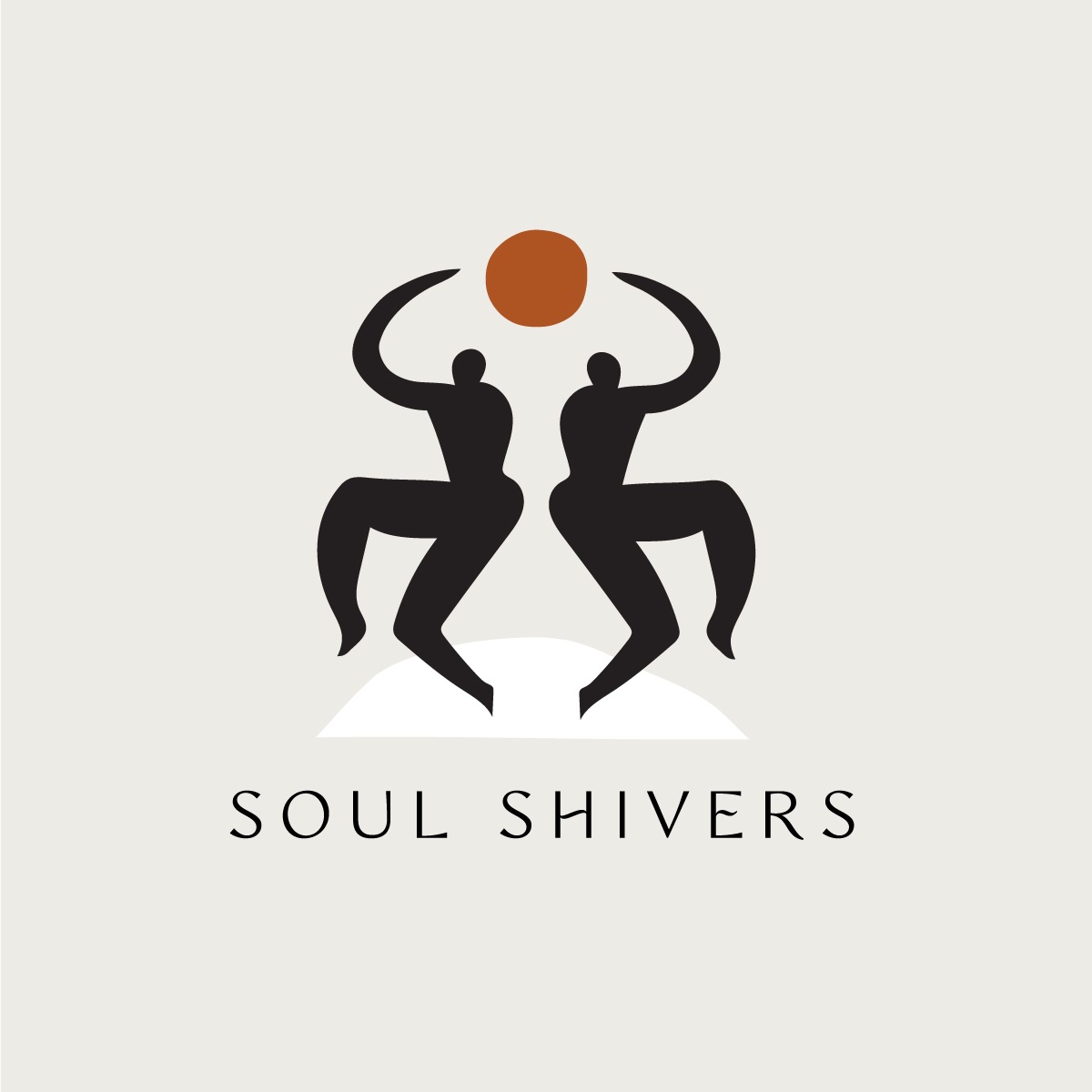
Amber Tamm, USA
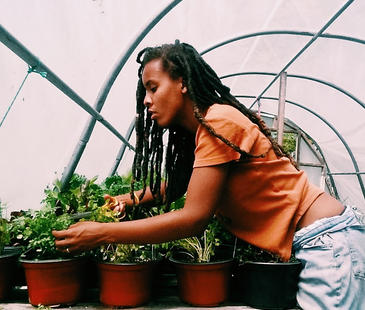
Every farmer has an origin story of how their journey to the land began. For some it builds over time and others it happens in a day. For Amber, it was a single moment when her father murdered her mother. At the age of 18, she lost both parents and along with them she lost her housing, income, food and healing. Little did she know farming would provide her with all of these things. For months Amber mourned, devastated in silence. And then there came a day when she felt called to get outside, into nature. “As I laid my mother’s body into the earth, the earth literally became my mother.”
Jane Ruka, New Zealand
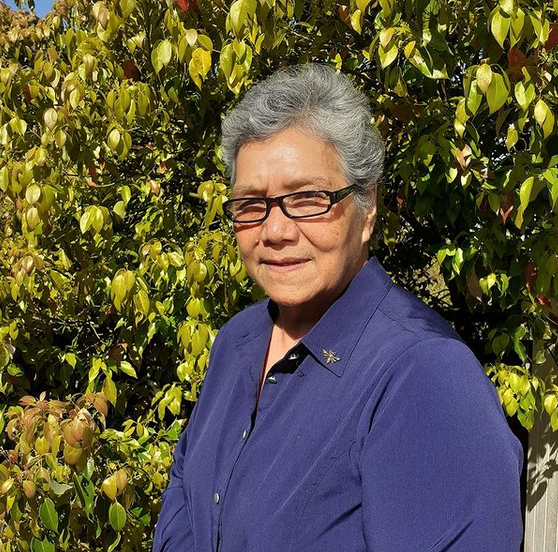
Jane Mihingarangi Ruka is the Chairwoman of the Waitaha Executive Grandmothers Council. The Grandmothers represent the Nation of Waitaha in Aotearoa New Zealand. Jane is the Kaiwhakahaere of the Waitaha Claim Wai 1940 lodged with the Waitangi Tribunal in New Zealand. Jane and the Grandmothers practice care for the environment, peace, and promote the wisdom of women.
Alexandra Gavilano, Switzerland
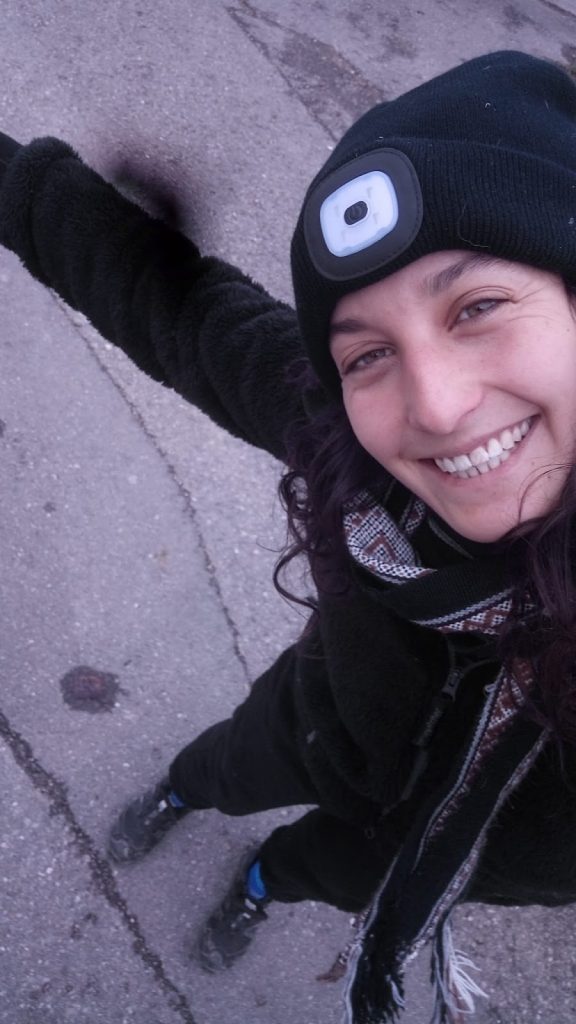 Alexandra Gavilano is a Swiss-Peruvian environmental scientist and activist for social transformation and planet protection. Her passion is to reflect, observe and learn from inner/individual and inner/collective processes and manifestations of those in the outside world to envision a way towards the new era of humanity and all beings on our planet earth.
Alexandra Gavilano is a Swiss-Peruvian environmental scientist and activist for social transformation and planet protection. Her passion is to reflect, observe and learn from inner/individual and inner/collective processes and manifestations of those in the outside world to envision a way towards the new era of humanity and all beings on our planet earth.
Luea Ritter, Switzerland/Greece
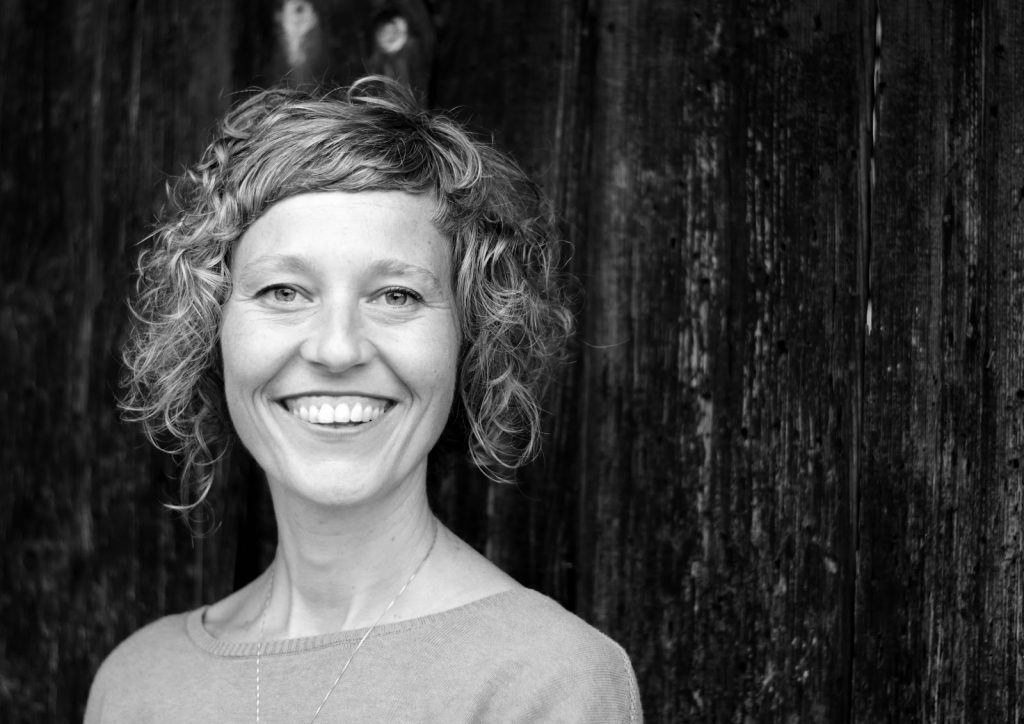 Luea is a process steward, action researcher, coach and systemic constellation facilitator. Her work internationally and across diverse sectors, weaves transformative change processes, trauma and healing work, leadership, and earth-based wisdom traditions.
Luea is a process steward, action researcher, coach and systemic constellation facilitator. Her work internationally and across diverse sectors, weaves transformative change processes, trauma and healing work, leadership, and earth-based wisdom traditions.
Through a diverse medley of fields she has developed a high sensitivity for context-based cultural and social dynamics. She is co-founder and creative steward of Collective Transitions, an action-learning and research organization dedicated to building shared capacity for fostering and maintaining transformational shifts, as well as co-founder and steering team member of the Nile Journeys, a platform for transboundary dialogue and regenerative collaboration in the Nile Basin.
She is part of collaboration helvetica, an initiative that catalyses systemic change towards the societal transformation of Switzerland by cultivating a cross-sectoral innovation ecosystem, running different capacity-building programs and open knowledge sharing. In her cutting-edge research-to-innovation PhD Process for Holistic Development with the Geneva-based TRANS4M Center for Integral Development, she focuses on social fields and the building and maintaining of coherence.
Freya Yost, Italy
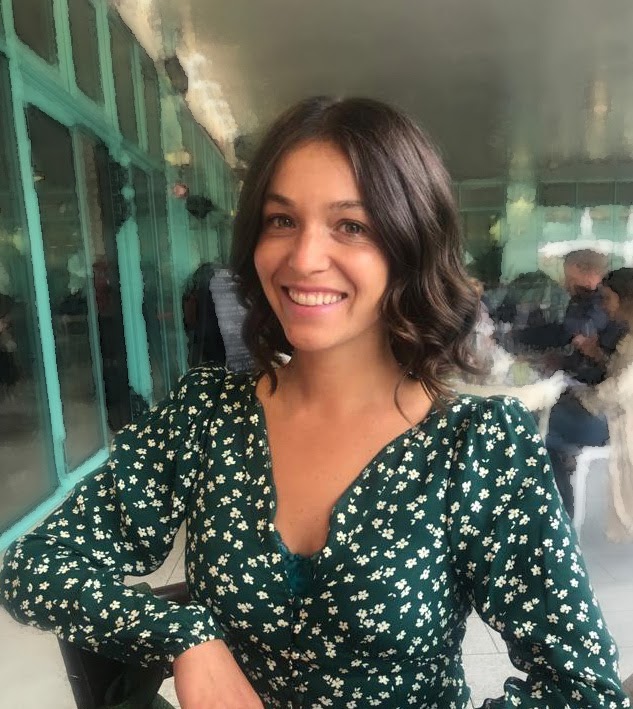 Freya is an artist and sustainability strategist based in Italy. She studied Art History at the American University of Rome (B.A., 2010) and Library and Information Science at Pratt Institute (M.S., 2015). She is also trained as a botanical artist.
Freya is an artist and sustainability strategist based in Italy. She studied Art History at the American University of Rome (B.A., 2010) and Library and Information Science at Pratt Institute (M.S., 2015). She is also trained as a botanical artist.
Freya helped create and served as COO of Common Earth, the regenerative development partner of the Commonwealth of Nations for four years through her work with Cloudburst Foundation. She was influential in organizing and facilitating several high-level convenings at the Commonwealth Secretariat in London between 2017 and 2019.
In addition, she has at institutions around the world including the United Nations, New York Public Library, Metropolitan Museum of Art, Civitella Ranieri Foundation, and A Growing Culture. Freya’s work has been featured in Vogue and she has authored articles in peer-review journals such as Weave, IK: Other Ways of Knowing, and IFLA.

Amber Tamm:
This is incredibly important because with Black History Month in America right now, the media is filled with depictions of the civil rights era or these dark horror genre movies about black Americans today, but they’re back in slavery. America will applaud a seer like Harriet Tubman for her ability to utilize nature to get to freedom, and when I hear that, it makes me almost sob because I’m envisioning a bunch of my ancestors venturing through nature but doing their best to be quiet, to blend in, climbing a tree for the sake of safety, doing bird sounds for the sake of communicating.
The reality is for me and my community that we’ve never went into nature for joy and we never went into nature comfortable. We never went into nature with conversation. Nature was a portal to freedom, and that’s all it ever was. So by time you got from the American South to the American North, yes, you had experienced nature, but it was for safety. It was to literally wade in the water, but the water wasn’t your friend because you enjoyed it. It was your friend because it got you to freedom.
So, I do think a big part for those of us who are black American is to revitalize the relationship with nature through conversation beyond it being a safe haven, but through conversation solely.
Ola (from the audience):
Thank you to you guys for everything you shared. I’m making connections between experiences in my life and the experiences that I’ve seen in other people’s lives around me. I live in Nigeria, and the trauma is so bad that we can’t have effective communication without shouting at each other. That is how we tend to communicate, and looking back at my own experience with my own mom and how she passed trauma onto me. I had to do a lot of work on myself without understanding the concept of trauma. Forgiving her for not knowing and still seeing how she is still reeling in that trauma and not being able to help.
It bothers me seeing how it’s also transferring to my own sisters, and I’m looking at it from a perspective of how long Nigeria is going to be Nigeria if we continue to operate this way. When Jane said that you should be willing to change your environment so that the next generation can have a better experience, I have noticed that my friends who live abroad still have traces of this trauma in them even though they changed their environment. So, I’m trying to make connections to where the regeneration would come from. Is it going to be from within, like from self or a shared understanding of what trauma is? This conversation really hits home for me, and I was really close to tears. So, thank you guys.
Jane Ruka:
I really am heartfelt for all these sins of colonization. We are still in our colonization in my country. By moving out of your environment, you first must, as you have done, recognize your trauma, personal or community trauma, by changing environments. I’m talking about your mental environment, your physical environment, and your running-away environment.
For those who can stand still, trauma is persistent, and the possibility that you are standing still means that you think you are strong enough to change your personal, mental environment and stand upright, still protesting about what has traumatized you. If you are still standing in that trauma, then you must be prepared to give your life for it in circumstances that everybody else would run away from, and I wish you well on finding your balance.
If whatever activity you choose to take needs your action, the trauma has presented itself to you. You have taken it into your heart and body and your mind, your surroundings. It belongs to you. Then your mind responds. Your waitaha responds. Your waitaha is your mana. Your mana is your spirit and your essential being and traumatized people respond only how their essential being or mana is able to cope with it. If running away keeps you alive and you’re able to develop into a stronger person, then that’s what you need to do. Nobody can tell you how you can respond. Your essential being knows what’s good for it and what isn’t good for it, and if it requires you to run away, then you must do that because you’re no good standing up in front of the trauma if you already know that you need to move from it.
If you’re one of these people who can stand there and decide, no, I’m not going to go anywhere, then that’s your decision to deal with your life trauma in that place and neither has any consequence to anybody else but to you, and your mana needs to accept that. Your essential being is a mana, and if you accept that, then that’s your learning from that particular trauma. We’re switching from community trauma down to personal trauma, and you’re the only person who knows how to deal with that. I wish you well, Ola.
Amber Tamm:
When I think of my journey, I was the perfect student and the perfect black girl from the hood. I was a great example of an African American doing what’s right, and that was really because whatever an adult was telling me to do I was doing.
I was on the right track, and I think once my trauma came and knocked me onto a different track, I had autonomy. I didn’t have grandparents or parents. That autonomy is abundance, but it can feel like such a burden. I feel like I need someone to tell me what to do, but the reality is that people will tell you, but it won’t fit. So, for me, I did run away. I went to Hawaii.
I think that leaving enabled me to just focus on me, but coming back, I had focused on me enough to then focus on the community. That process of self observation is super healthy, and I want to “normalize” that, but I think the other side, and this is something I’ve said to black community several times is, I love my people enough to leave them sometimes.

About Soul Shivers
Soul Shivers is a growing community of women connecting around the deep work of earth regeneration. We partner to produce media, podcasts, and creative projects in service of this collective work. Most importantly, we learn together.
For us, regeneration is not just a set of alternative solutions – nor is it just about nature. Instead, regeneration is about activating the capability and will to shift unhealthy ingrained patterns so that we can step into our innate potential as stewards of life. Regeneration involves relationality and the ability to cultivate it towards higher orders of connection, wellbeing, and belonging.
Soul Shivers captures seldom heard stories from women around the world working on earth regeneration in different ways. Our stories are intimate, translocally interconnected, and impactful. www.soulshivers.org
Inhale Exhale
Inhale Exhale
Editor’s note: This is dedicated to our friends in India, suffering from the effects of Covid.
Inhale Exhale - Jahnavi Pandya
Song Credits
Lyrics by Pallav Pandya
Composed by Jahnavi and Pallav Pandya
Music arranged by Candida Maria Lobo
Sung by Jahnavi Pandya
Backing vocals by Candida Maria Lobo, Varenyam Pandya, Pallav Pandya
Translated by Candice D’souza
Translation excerpt:
Beautiful is the peace that is within,
It is bereft of the illusions of the world (casteism, racism, inequalities)
It is beyond happiness and sadness
Oh can you imagine where would you find such a beautiful experience?
ONLY WITHIN
Inhale.. Exhale..
The inner world of your consciousness is so peaceful and calm
Peace is the nature of the soul
Expectations are the root of all disappointment
Over-analysis destroys peace and happiness
Inhale.. Exhale..
Feel the joy of your breathing
Conscious coordinating of the rhythm of your breathing, is indeed an invaluable luxury
Inhale.. Exhale..
Sam Guarnaccia | Jahnavi, how does music inform your work as a psychologist? Or, how does the realm of psychology inform your music?
Jahnavi Pandya | Music activates certain parts of your brain which are also related to decision-making. Music helps you to be more creative, especially when you improvise. In India we have ragas. A raga is a discipline where you stick to certain notes, okay? But you also improvise with unique combinations of these notes. That kind of an improvisation helps you become more creative – to be within a limit but go beyond it. And I can use the same thing in psychology.
Music can be really powerful in influencing the way you think, in influencing your behavior and your actions – just like media. And in the same way as media, music can also be kind of dangerous if you’re not using it in the correct ways. Say if you’re already in depression, for example, and you’re listening to certain kinds of songs… But generally, music makes me creative and psychology makes me more wise on how to use my music.
Sam Guarnaccia | Your father was a big influence?
Jahnavi Pandya | Yes, I got exposure to a wide variety of music because of my father. Because he is global. He learned Arabic music from an Arab teacher. He went to an American teacher and learned jazz. So that kind of an influence also helped me.
Sam Guarnaccia | You embrace social issues in your music.
Jahnavi Pandya | We came up with a song for suicide prevention awareness, and this was made with team of doctors and psychologists. When I was in the ninth grade my brother was four years old and we sang the song. One version was also sung by my father and a renowned singer in India.
I would also post things on stress management, because I started reading books on psychology at a very young age. So whatever I would learn I would just make a video and put it up on YouTube, and 5, 10 people, 30 people would watch it. And then suddenly one day, I remember because I was in the first year in college, I woke up to see that one of my videos had 100,000 views overnight. And people stared commenting, “Can you tell us how to do this? Can you tell us how to do that?
And I learned that in India, rural kids don’t even know that there’s a subject called psychology. They don’t know that they can study something like this. So I just started putting videos on about my experiences, how I studied, how I got into college. It started as an effort for suicide prevention awareness because more than 250 children commit suicide every day in India. So it started off as that, but then it went beyond.
As soon as I learned something, I started putting it up on YouTube. I did not want them to go through the same struggles that I had to go through. How to apply for studying abroad and those kinds of things. So, such small things, I just started uploading videos and now I make videos on psychology and mental health awareness using music. I explain each concept of mental health – like fear – through a song, guilt through a song. I explain guilt and then I present a song to make it more easy and understandable .
Sam Guarnaccia | And it’s mostly youth of different ages?
Jahnavi Pandya | Largely the following is from 18 to 24.
Paula Guarnaccia | We know from our time with you in India that you have extraordinary compassion for the people of your country and I’m thinking about the night you went out to help the people who couldn’t get into the hospital. There were people who were very ill on the street in Mumbai outside the hospital, and you were using music to elevate their spirits – in the middle of the night basically.
Jahnavi Pandya | Yes, I want to use music as a tool to reach to the masses.
Because if you say something through music it just goes into the head, it just becomes a culture. As a psychologist I can’t just ‘make’ a culture – but I know that music influences the culture and obviously the culture influences music, And in that sense I want to continue making songs to explain difficult concepts in mental health, and take it to the people. I don’t want to be limited to one-on-one practice. I want to reach more people through social media or through other resources. And I know that the best way for me, from what I’ve found, is to do it through music.
Jahnavi on non-verbal communication

About Jahnavi Pandya
Jahnavi Pandya is a Psychologist with a specialization in counseling and holds the National Eligibility Test Qualification for Assistant Professorship by University Grants Commission, Ministry of Education, India.
She has been a national award-winning archer, singer, musician, composer, YouTuber, and social worker. She was awarded the ‘Nari Ratna’ (Jewel among Women) by Gujarat Chief Minister’s wife A. V. Rupani. She received her MA in Counseling Psychology from SNDT University, and BA in Psychology from St Xavier’s College Mumbai, with the title of ‘Student of the Year’ (across all disciplines).
For the last 12 years she has been working on suicide awareness with her father Pallav Pandya. She voluntarily helps 31 orphan girls, and in two years has collected over six lakh rupees (nine thousand dollars) through crowdfunding done through Facebook and other social media sources. She has also reached to over 1,000,000 students helping them deal with board exam stress through her YouTube channel – Jahnavi Pandya.
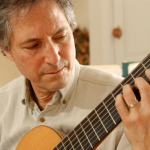
About Sam Guarnaccia
Samuel Guarnaccia, a Vermont native, studied classical guitar in Spain and has performed throughout parts of Europe and North America. He has taught and instituted programs at the University of Denver, Middlebury College, and the University of Vermont, as Spanish scholar, player/performer, and composer with deep ties to the history, struggle, traditions, art and spirituality of ancient and contemporary Indigenous peoples.
His cycle of nine Peace songs has been incorporated into a Peace education curriculum. His previous major work, A Celtic Mass for Peace, Songs for the Earth, has been performed all over the United States, Iona and Edinburgh, Scotland, and was featured in a major Peace celebration on the 10th anniversary of 9/11 on September 11, 2011, in New York, and in Vermont.
Photo | Maria Theresa Stadtmueller
Storm
Come…
The storm is always with us now
And visibility is poor,
While the world loses color,
While the gray rain blurs the lines between us,
I would meet with you
For one heartfelt honest moment
To stand together
Here,
Beside the unpaved roads of tomorrow
And listen beyond our human voice
To the Earth
As she quietly turns away,
and know it is time for us
to listen and decide
I would tell you
In these vague
Unraveling days of aftermath,
I have heard the wind speaking in tongues,
A presence
As restless as fire,
As sad and certain as the sea
Trying to make contact,
Straining to invade my sleep,
Straining to pierce the glaze of small talk
And endless cups of coffee,
Pressing up against the tedious rooms of my daily life
Where I am busy and working and busy and tired…
And yet, and even then
It would still reach into my heart
With its troubled language
To summon me towards perception
As if to say…Observe!
Behold the momentums of your history!
Bleak with the ghostlands of cities and forests,
Bleak with the trillion bitter choices
That have left you here
In the scorched air
And rusted meadows
Where thinning creatures come to bathe
Amidst the dying light
Have you wrestled with this too?
And somehow known
It was time for massive change,
Time for us to empty our pockets
Of all the angry coins:
Revenge and war,
Politics and greed
And stand outside the storyline
That holds us hostage,
Free to jettison its toxic prizes
And frantic hardware,
Free to stand simply again
United, still,
To fathom the enormity
Of who we truly are
And what we may have lost
I would go with you then
Out beyond the
Graveyards of the lost cities
To pause with you,
Pause and look up,
Up past skylines and fitful air,
Up where the unfinished night
Twists against the sky,
Where stars, like dice, are hurled
Against the mystery
And miracles are born
And squandered
And know
It is time for all the world
To stand together and feel the universe
Unfolding all around
And hear the streaming fingertips
Of light calling out
From galaxies far away
For us to look!
And be aware
That the great curvature of forces
Stands poised in fragile balance
Awaiting our decision
To listen and decide
In this time of rain
When seasons seem disfigured
The wind is loud and unrelenting,
Come from mountains
Come from mystery
Spreading out
Through star-struck sleepless nights
To prowl against our hearts
To speak to us in dreams
And wake us from this deadly sleep
And know
That the long arc of consequence
Has finally arrived
And chosen us
To be the final word
The last defense
To kneel down beside this wounded miracle
To listen and befriend
For the Earth is turning,
Turning back
Towards the terrifying beauty of creation
Where she was born,
Where all is still
And she will turn away from us forever
Unless we can decide,
HERE!
NOW!
With our backs against the void,
To begin again
With courage and with love
To undo what has been done
So come…
Come as close as you dare
And let us go together
The storm is always with us now
And visibility is poor
This is the time for vision
And there are those
Who do not see.
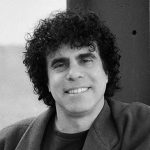
About Thomas Lane
Growing up in Connecticut, Thomas Lane was drawn to spaces where street, sky, and spirit intersect. His art takes many forms: a CD of his songs (Hotel Earth), a nonfiction book (The Artists’ Manifesto) and poetry. He has also written a spiritual thriller (The Karma Factor), optioned by Hollywood. It is currently being adapted for a feature film.
Thomas is the Founder/President of a 501c3 that works with the homeless. (HelenHudsonFoundation.org).
Our Collective Journey
Our Collective Journey
“Distinct from metamorphosis, where a butterfly emerges from a cocoon suddenly and magically, the pearl is conceived first in pain, laboriously worked on, and results unexpectedly in a jewel.” – Jeanne Chiang
Outside the window here in Pennsylvania, migratory birds are making a beautiful racket as they fuel up for their collective journey south. At the same time, thousands of birds are falling from US southwestern skies. Forced to skirt the smoke from wildfires, they have detoured into desert territories without food or water to sustain their journeys. They fly until they perish.
Do all birds somehow feel this collective loss, this avian holocaust that began decades ago as the forests and insect populations steeply declined? Do birds have collective awareness, memory of wildly vibrant woodlands and pristine waters teeming with life? It’s almost too painful to contemplate. We have lost nearly a third of our birds in fifty years.
Such difficult truths are painful, and we are hardwired to avoid discomfort. But if our first reaction is to run away, we never learn the deeper truth beyond the thing we fear. When we push away the pain of loss – birds, rainforests, human life – we push away the complexity and beauty too. Life on Earth developed only once and all organisms are interrelated. Because birds exist, we exist. And the same goes for fish and trees and bacteria. We inter-are. To reach this insight we have to be willing to let some of the pain in, and to see our part in it.
Alnoor Ladha, activist, writer and friend, collaborated on this edition of Kosmos. As a guest editor, he curated several features under the hashtag #CuraDaTerra, (Cure of the Earth), and offers this:
As we start to see how all oppression is connected, we can also start to see glimpses of how all healing is connected. And that our own liberation is not only bound up with that of others but that our collective future is dependent on it.
We are a young species with everything yet to learn. The well-loved writers, speakers and artists in these pages – Vandana Shiva, Charles Eisenstein, David Abram, and others – are shining light into our shadows. They help us feel the pain in order to gain the pearl. The pearl is purpose.
Humans may not be the highest purpose of Life, but Life must be the highest purpose of humans.
Understanding purpose requires conscious alignment with an evolving, living Earth. We don’t invent purpose, we find it, we stand in its light. When we allow Earth’s purpose to guide us, we know how to act in harmony with Life. Purpose drives our positive activism, our adaptive capacities, innovation, and faith. It feeds our resilience to change and our resistance to injustice. Choosing to consciously serve Life, purpose is our raft on the rapids of change.
These words from Kosmos contributor Robert Cobbold say it clearly:
If, as a species, we can successfully make the transition to Conscious Evolution, not only will we dramatically increase our chances of survival, but we will be stepping into a story which can provide meaning and purpose for humanity’s existence.
Today, the birds are still singing as they prepare for their journey. Mother Earth is still here, alive! The leaves are turning color once again – crimson, yellow and orange – compost that will feed the trees in the dark days of winter. The collective pain we are enduring will feed us too, nourish our understanding. The journey is likely to be hard, but there is so much joy and beauty too. Life is still here to cherish, right now, as Earth continues spiraling through the cosmos. We are honored to share this precious gift of time with you.
Thank you for your love and support of Kosmos.
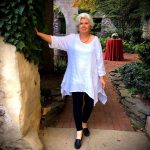
About Rhonda Fabian
Rhonda Fabian is Editor of Kosmos. She is an ordained member in the Order of Interbeing, an international Buddhist community founded by her teacher, Thích Nhất Hạnh. Rhonda is also a founding partner of Immediacy Learning, an educational media company that has impacted millions of learners worldwide for 35 years.
Ms. Fabian lives and is active in Transition Town Media, Pennsylvania. She is a grandmother, court-appointed special advocate (CASA) for abused and neglected children, and an NGO Representative to the United Nations for Kosmos Associates.
The Deschooling Dialogues: Grief, Collapse, and Mysticism
The Deschooling Dialogues: Grief, Collapse, and Mysticism
This is an edited transcript of a conversation that took place on April 24, 2018 as part of the inaugural quarterly issue of Kosmos Journal. The theme of the first edition is Unlearning Together. As such, it felt appropriate to have a quartet dialogue of unlearning, focused on a complex of issues associated with the inevitable transition to post-capitalism; namely, the issues of grief, collapse and the mystical impulse of transcendence that can provide deep healing in such troubled times. One of the key questions is how we come together to explore the edge of our practice as seekers, as activists, and as advocates for a more just and loving world.
This conversation was facilitated by Alnoor Ladha (AL) as part of an interview series titled, The Deschooling Dialogues: Wisdom from the Front Lines of the Battle Against the Colonized Mind. Rhonda Fabian (RF) is the editor of Kosmos Journal; Martin Winiecki (MW) is the global partnerships coordinator of Tamera, a peace research center in southern Portugal; and Martin Kirk is the co-founder and director of strategy at TheRules, a global network of activists, writers, researchers, coders and others focused on addressing the root causes of inequality, poverty, and climate change.
AL: Thank you for bringing us together Rhonda, and for the critical work you do with Kosmos Journal. Given that this edition’s theme is unlearning together, ‘deschooling’ is the perfect place to start. And especially around grief, because in the Western dualistic mindset that we all have been socialized in, we have a tendency to seek pleasure and avoid pain.
In fact, our moral philosophy, the dominant moral philosophy of utilitarianism and the economic philosophy of neoclassical economics is highly dependent on this premise. Part of the unlearning we’re doing is to re-contextualize and re-understand the role of grief as a mystery unto itself– not as something to avoid or to understand, but to go within and to transmute, to evolving through and with.
Grief is the chrysalis chamber in many ways and it’s necessary in some ways for the redemption for our action. On some level, we can say, “Well, this grief is not ours. It’s for the collective whole.” Yes, that’s true, and in some sense, in a meaningful sense, we are the collective whole. By working with the shadow and light aspects of grief, we are taking responsibility for the emotions that come with the actions we have undertaken as a civilization. Whether it’s collective grief or individual grief or community grief, perhaps it is not something to be avoided, but is actually part of refining our character. So, let’s start there.
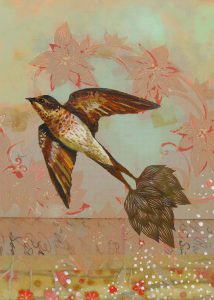
MK: One thing that is challenging that I’m trying to process is that we’re not talking about the grief over a death. We’re not talking about a period of grief. At some level, being alive on this planet as this great unfolding happens is to be living in grief in a permanent sense. Because of the amount of destruction and death that is not only happening but is so very visible if you choose to look. It turns grief into a permanent type of practice. You can’t open up a newspaper without there being some event that in any normal time would be a profound story. But in this day and age, where we are so obsessed with the immediate and the dramatic and the daily political soap opera of things, we see these stories passing every single day with a normality, perhaps even with banality. Whether it’s the destruction of Arctic ice, or the extinction of pollinator species or whether it’s the concentration of ocean plastics or the increasing level human violence in immeasurable ways or whether it’s just the sense of insanity that pervades our political structures and systems right now.
It all speaks to a process of death that is underway and is going to be unfolding throughout our lifetimes at some level. It is also married to a birth, a rebirth. At least that’s the hope—with death comes rebirth. However, it seems that death is far more evident than the rebirth in many ways right now. So the question for me is, how do I work with the concept of grief in a way that doesn’t focus on its end point?
I don’t know that trying to process it away is realistic or sensible or wise. I feel I’m not very skilled at this. I feel I am having to unlearn everything I was taught. It’s a struggle. I have no answers. I’m trying to work with my emotions. I’m trying to connect with them. I’m trying to let them be. And trying to not be attached to the outcome that will inevitably pass. It is the big ‘unending.’
RF: Thank you Martin. I think what you describe is the ongoing daily practice. I’m very fortunate to live in the woods and spend a lot of time sitting with the trees and it occurs to me often that, as wars rage, the trees grow slowly.
My teacher, Thich Nhat Hanh says that a tree doesn’t run around trying to save the world. A tree only has one job, and that’s to be a tree. And when trees stop acting like trees, we’re all in trouble. I wish that I could be more like that sometimes, because when you think about it, trees filter toxins out of the atmosphere simply by their presence. They convert sunlight into food energy without discrimination. And through their mycelium and their roots, they connect to the wider web of life. And, in that same way, I feel that I have to be a good tree. To try to convert some of the toxic substances in my energy field, some of the suffering, into compassion, and to offer the ‘food’ of my presence for the benefit of all Life.
Now, all of that and a dollar doesn’t buy you very much if you’re a victim of sexual slavery, or being tortured in a Syrian prison, or your children are starving. And yet, what helps me is to remember that we are bigger than this human experience. That we’re all connected to the same Source. And we return to Source, the Code of Creation. So, in touching peace I add peace to the whole. Without that peace my activism in ineffective.
MK: I know that I should be sitting in my practice deeper. But I find that there’s an element of this grief that part of me is going slightly mad with. And it’s, and one of the symptoms of that madness is that it disconnects me from my spiritual practice.
The thought-form of Wetiko [an Algonquin word that roughly translates to cannibalism] in some sense is grief itself; it has an innate desire for grief. It has a pernicious desire within it to keep me separated from the practices that will allow me to process grief well. Maybe there’s some sense of guilt that we should suffer. After all, we are part of a civilization that has created so much suffering everywhere. Why should we be free of it? Part of me wants to suffer when it sees the suffering. Part of me doesn’t want to be freed from it. Part of me wants to go mad. Because it feels like going mad is an appropriate response, almost as if it is through the madness that one can truly see.
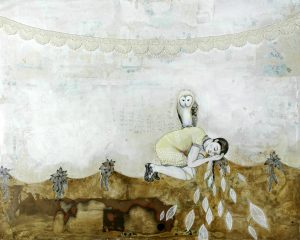
I think at one level I’m accepting this and I don’t beat myself up for it. No human beings have ever lived through a time like this, we have never been able to see such global suffering with such precision and clarity. We are constantly exposed to global horrors on an enormous scale. We see, in real time, the bombs dropping, children being gassed. It happens in our living rooms, in a way the wounds are still fresh and always open.
On one level we are aware of and sense the scale of this terror of global capitalism. Our human brains grew up living in small communities in a contained geographical area with a certain set of influences and inputs. So of course, we are overwhelmed. And on some levels, it is impossible to process. If you try to think about ideas like human extinction, civilizational collapse, all of these vast forces, it’s impossible that a single human mind can process it well. We’ve certainly not been taught how to. I certainly haven’t been.
MW: I would like to follow on this line. There is no doubt that we are in the midst of unprecedented moment where there is no return to old certainties. Part of this pain that we are facing in the world is a pathway toward transformation. Or will we perish in the horror of the onslaught that we are facing? The decision of how we navigate these two avenues profoundly depends on the way we actually respond to that grief that we are facing, that we are receiving, that we are feeling at this moment.
I would like to tell of an experience that for me was actually really significant in dealing with grief. I was visiting a peace village in Colombia called San José de Apartadó, which is a community of farmers who took a stand to remain outside the battle between the FARC and the Colombian paramilitary.
As part of a service commemorating the very painful history of the community, a priest- a liberation theologist- spoke for three hours telling stories of one massacre after the other. After only five minutes I realized my normal self will either collapse or I will just do the usual thing, which is to close my heart and go off somewhere else. At that moment, I made a spiritual oath to stay there in my practice with an open heart and to listen to all the stories and the details. At some point I realized I entered into what I would call a sacred space, a form of transcendence where I felt that if I am able to really bear witness fully, I could remain in a state that is beyond my normal emotional self. And I felt as if, through my heart, I was truly perceiving. I could access a deep empathic state. It was also causing tears. I felt as if there is the collective heart of humanity that wants to awaken. It felt like an incredibly pain-soothing power that wants to operate through us to the extent that we come to the point of pure empathy that lies in receiving this grief.
When I look at our global system structurally, what is keeping our current culture alive is the closed heart of the Western world which keeps us in this illusion that we are separate from each other, that we are egoic Babels that are not interconnected and not interdependent. But there is a ground of existence which is completely interdependent, an eternal realm of existence which in a way we can never lose.
AL: Thank you for sharing this. Yes, it is this state of transcendence that our current crisis can lead us to. There is this idea that is prevalent in spiritual discourse and New Age circles, which is the idea that if you’re feeling pain, you are not healthy. You are not grounded. You are not in your center. But how can we amputate our shadow or even our ego? Actually, by holding reality, our subjective reality, in its full light and its full darkness we can consciously choose how we synthesize the shadow and amalgamate the light.
I have two short anecdotes. My uncle is a Sufi scholar. He would tell us these stories when we were kids about our ancestors and about what their role was in society in ancient Arabia. That they would go into town squares in congregation and pray with a collective intention of healing. They would pray and create sacred geometry and architectures of golden light and hold the energetic force field of these places. They believed they averted war and catastrophe and death and domestic abuse and all of these types things. But they would never claim credit because they didn’t believe in linearity or in cause and effect. They just knew that this was their purpose and needed no other reward except the very act of doing it.
And then, recently, I was listening to Stephen Jenkinson speak. He’s the author of Die Wise and he runs the Orphan Wisdom School. He was speaking to a largely Western audience and suggested, “You’re all looking for purpose. But this very idea of purpose is egoic.” He went on to talk about Indigenous cultures in which there was a cycle of completion. For many Indigenous communities, there’s clear purpose. One is to take care of the land on which they lived, of which they were a part of. The second is to honor the ancestors. The question one asks within these frames is: what kind of ancestor will I be? What kind of steward or caretaker of this land will I be? And because your ancestors were buried on that land, the dual purpose was actually a single purpose. They are the same thing.
This cycle of completion really helps one to understand their purpose. And because you had a relationship with your ancestors, you had a relationship with death itself. You didn’t fear being forgotten. But in our orphaned, Western culture, we fear death because we fear being forgotten. We know that we ourselves are abdicating our responsibility of being stewards of the land and honoring our ancestors.
MK: I agree that part the fear of death is the fear of being forgotten and the fear of being irrelevant and the fear of never having been. One of the things that makes it hard for me sometimes to connect with spiritual practice is that it has to be recreated for me because I didn’t pick it up from my ancestors. I don’t have the language. I don’t have the metaphors, the mythology.
The religious imagery I was brought up with was Protestant UK. And that doesn’t speak to me, the Judeo-Christian tradition doesn’t speak to me. That’s why I cast around to re-create and re-remember truths from many traditions. Without the tethers of things like land, ancestry, access to traditional wisdom, one can feel surrounded by the pain and the suffering. We have to re-access the muscle memory.
RF: I feel your words. I don’t really have ancestral family memory. I don’t know who my father was. I left home very young, at 16, and lived on the streets of New York. And my family, for a time, became the people I met and lived with on the streets. And yet, I know that my ancestors were also present, with me in this circle right now. And yours are too.
It’s absolutely miraculous that our ancestors are right here with us. Look back say 50, 100 generations. They too endured great hardships, struggles, grief. For anyone alive today, your ancestors had to be skillful, smart and lucky for you to exist at all. And we know also that trauma is passed down through the generations in numerous ways. So we are drops of light in a very long evolutionary stream of light. I have to believe that together we are flowing toward an even greater light.
I call on my ancestors. I don’t know them by name, I don’t know what part of the world they’re from. But I ask them to help align my purpose with our highest collective purpose.
MW: Human culture is embedded in a bigger movement of life which doesn’t end at death. We are therefore not confined to this threatening border of death. I want to acknowledge this- it’s very beautiful and inspiring.
I also think that it is very much connected to the idea of tribal culture. Connection with Life requires a cultural container or a framework that actually cultivates community. Not only with the souls of my grandparents and all the generations that came before, but with all the beings that surround us, all that is fundamental to our existence.
Purpose is not just something that is a part of some separated human mind. There is a purpose that is part of life which is evolution pushing forward on its path. When we are no longer driven by the compensation for the loss that we suffered, when we don’t need to invest in personal careers but can actually ground in this sense of community with life, then our purpose is an expression of the purpose of the whole.
However, this embedment needs a foundation where people actually feel this interconnectedness on a daily basis. Right, it’s not just an esoteric buzzword and something that brings book sales for self-help gurus. It needs to be a societal reality,;otherwise, it is just another religious comfort.
AL: Indeed. Even these ideas of ancestry- in some ways, we frame tribal as strictly positive- but there’s also the shadow side where we believe our ancestors are simply the people in our blood lineage. That may be too linear of a definition. If you look at Ancient Egyptian cosmology for example, there was a school of esoteric thought that believes we have star ancestry. We have these star nations that are connected to our higher missions in some way. And they negotiate with our physical DNA line in order to achieve our life objectives.
I’m not suggesting I believe that or not. But it doesn’t have to be DNA ancestry in a traditional sense, but rather to access the notion that we may be a part of something bigger than us, as Martin [Winiecki] described, this affinity to the community of Life. Of course, a part of the world’s endowment is our collective endowment. Including all ancestry, including all life that is extinct or living.
To then go back to physical DNA, I don’t think we fully know what our relationship with our ancestors truly is. Through all the work the scientific community has done on the Human Genome Project, we only understand the workings of about 7% of DNA. The other 93% of DNA that we don’t understand, scientists call junk DNA.
MW: Like Dark Matter.
AL: Yes, it’s the Other. The Unknown. And what they’re finding now is that this DNA has an electromagnetic pulse to it. A very strong electromagnetic current. So in some ways it could be that our ancestors are living through us in this electromagnetic form.
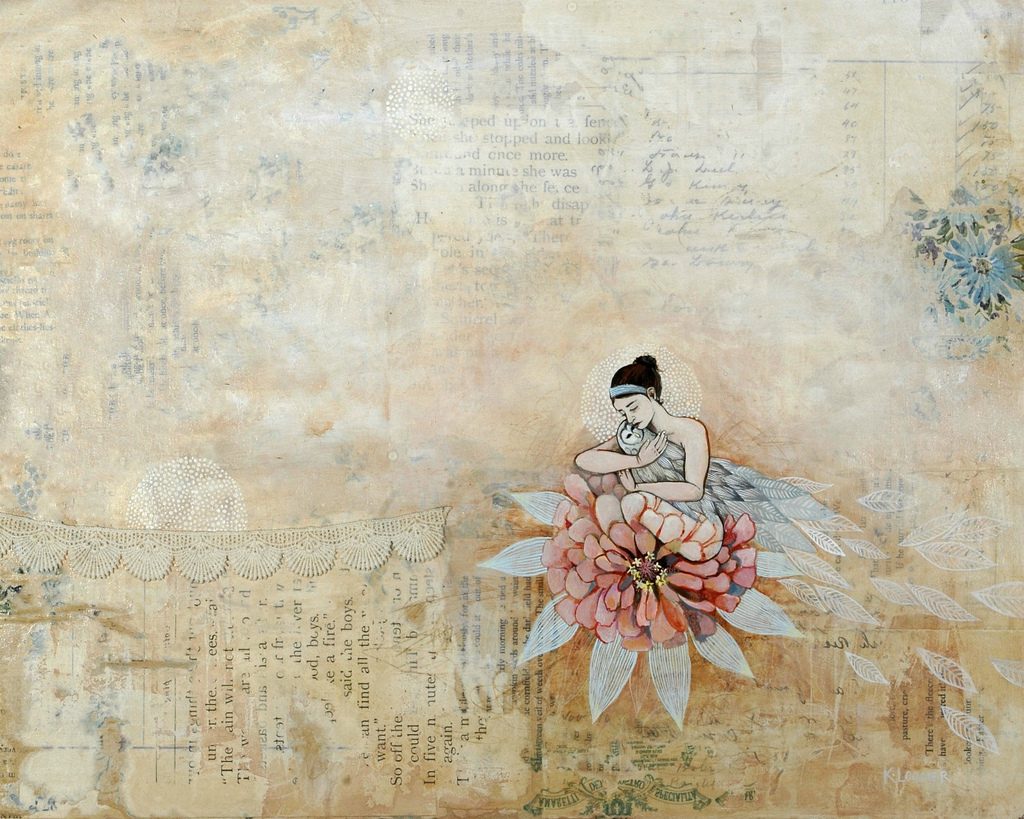
In some ways we’re all in the business of redemption, you know? I know many Westerners, who feel the sense of being orphaned by the migration from Europe to North America wherever. They say, “I actually hate my ancestors. My ancestors were colonialists. They were imperialists. They were slave-traders.” But this is still a connection with your ancestry. And there’s a bravery in facing that as well. To recognize that the agency of our forebears in creating the reality of late-stage capitalism could be the entry point to redemption.
This leads another inquiry: how has the linearity of scientific materialism and scientism and rationalism and binary thought limited us in our ability to transcend the grief of capitalism? How could the impending collapse of capitalism be separate from the scientific method or the Industrial Revolution or Wetiko or any other historical precedent that led to this moment?
MK: First, I’d like to go back to the ancestors and that sense of time, because there’s a linearity in that logic too. They came before me, I will become one, time moves in a certain linear-stages. I take your point about ancestry not just being about direct DNA lineage. But for most people, it is an access point into a bigger concept. So, you have that easier access point.
The ground of being accessed is the emergent reality, the Source, as Rhonda said. That, to me, is a more accessible construct. And when I think about purpose, when I think about things like that, I ultimately come back to the idea that purpose is your connection to that Source of being, which I think of as Love, the force of creation itself. This line of thought helps me access concepts like death, rebirth, and even capitalism.
Capitalism, in all its gross and violent imperfections, is also a process. As such, capitalism may be its own salvation. This is a sort of Sufi thought. It is a part of the universe becoming self-aware. We are so conscious of its shadow right now because it is so obvious. However, its shadow is what takes us through transcendence. It is the power that gets us beyond it. So, it has its own perfection built into it. It is both perfect and violently imperfect at the same time.
RF: I love that we’re touching on the underlying code. When I think of that Code of Creation unwinding through all that underlies Life – the structure of atoms and solar systems- I recognize that we’re fractal manifestations of that code. And I think that somewhere along the way the scientific models made a crucial error about that code—that the basis of the code is competition, that we evolve through a neo-Darwinian selfish gene, by competition. If we can now look deeply at the code through the lens of cooperation rather than competition, things can and will go in a different direction for humanity.
MW: Indeed Rhonda. We are starting to understand what kind of current we are part of. It is very profound that we are still figuring out what it actually is. It’s important to look at the aspect of shadow and grief in this context. If I say I hate my ancestors, then I am actually saying at the same time that I allow the shadow of that story which I don’t want to face, to govern me from that part of myself which I don’t consciously integrate.
If I not only think of ancestors, but of the concept of reincarnation, then I also have to face the possibility that perhaps I was a conqueror. I was a colonialist. There is no way of stepping outside of this until we come to this point of seeing the underlying deep longing for love, which was misguided in a system that was directed against love, against the truth of our bodies, of our souls. A system which turned love, time and again, generation after generation, into hatred.
In some ways, we cannot have a humane transformation if we don’t find another relationship to love, break this eternally repeating cycle of being born, having this longing for love, being disappointed, and then living through resentment and revenge.
MK: That’s a really interesting thought. The idea that we’re all just living out—at least in the Western world—a revenge script. We just feel our expectations have been thwarted around love. I can certainly see that playing out in my life, but if you extrapolate out to the macro, you can see there is indeed revenge. There is anger. There is one-upmanship.
As Rhonda says, it’s the competitive instinct given free rein. And all the energy and all the power pumped into it. We’ve all had our expectations thwarted. We should have been given better. It is, in a sense, kicking against reality.
A conversation that is not had anywhere nearly enough is the recognition of the incredible effort and energy required to keep capitalism alive. If you wanted to put it in financial terms, there are billions of dollars a year just spent on advertising around the world. That’s a number that you can almost say is the degree of propaganda and desire invention required to push against human nature. That is the degree to which it is pushing a rock against our ground of being, against that instinct of love.
We see this with social media and the rise of the communications infrastructures. Everything about it keeps you out of deep thought. That’s the whole point of it. And I think that’s where we are. Our baser desires are primed. They’re getting all the energy, all the validation. Therefore, we can’t access the antidote which is that connection to Source. Which is that deeper spiritual silent voice of conscience that you find in silence. That you find in Nature. That you find in your spiritual practice. Capitalism is designed to de-spiritualize. In that sense it is the opiate of the masses.
Capitalism describes our collective purpose through the prime directive of producing more capital as the number one thing it has to do. This just means, “Focus on something that isn’t love. Focus on something that is purely a human construct that communicates best with your ego, not with your spirit.” Money and ego are in beautiful dialogue with each other. They are of the same nature and they feed each other. This is the depth of the age of delusion, as Buddhist thought describes it. That’s how the trick is cast. It keeps us in our shallow mind, not our deep mind.
RF: As activists, when we try to solely use our shallow mind to solve problems, we’re doomed. We get caught up in those very constructs and we think that technology and rationalism will save us. Just as we think that we’re the good guys and the other person is the bad guy. As long as we address these problems as ‘us versus them,’ we’re doomed. However, when we act from our hearts, we recognize that all beings are my ancestors, all beings are part of my identity. I’m the colonized and I’m the colonizer. I’m the one who is raped and the rapist. When I truly see that, I can begin to understand that toxic energy and how to transform it. Without that sense of wholeness and interbeing with all the energies that are contributing to the problems, I can’t begin to be a part of the solution. My anger just generates more aggression.
AL: In some ways, this is the heart of unlearning together. And in many ways, it is a re-membering. When we define ourselves in opposition to the Other, to Babylon, the Spectacle—whatever the monster may be—we then re-enter dualistic thought, a sense of superiority, and the reification of the ego.
I notice when I say that we are “entering the era of re-membering” or “we are moving from an age of independence to interdependence,” people respond with, “do you want us to return to hunter-gatherer living?” I go back to this Hakim Bey line in his essay series, “Immediatism,” where he says “We don’t want to go back to the Paleolithic, we want to be of the Paleolithic.” We want to access the vast storehouses of psychic power we have forgotten we possessed.
MK: Indeed. This is technology. I feel my practice now is to hold and not turn away from the full horror, while not being transfixed by it, like a deer in headlights. It’s a process of continual renewal inside and continual reconnection to conversations like this. I’m reminded of a quote from this British economist David Fleming. He said “Before you do anything important, consult a conversation.”
RF: I want to express gratitude for the three of you, for the work that you do. We each have our spaces to hold. Some of us can go to the front lines and get arrested and put in jail for our activism. For some, it is ours to witness, to stand and witness the horror. For others, it’s to build community and alternative realities. We all have our work to do.
MW: Yes, I’ve been reminded that unlearning happens by becoming aware of the mind-viruses that keep us hostage. As we are challenged to become aware of the programming that we are driven by, there is such a deep challenge at the moment to understand the depth of the expectation of catastrophe, and come to a place where we can confront reality and know that we are also shaping it. I can say the edge of my practice is really how can I look into the world, not suppressing what happens, and still see beyond the pain, to see the possibility of healing.
AL: Yes, we must become aware of the thought-forms, the mind-viruses, the memetic structures that hold us to that old way of being. And I am reminded of this Vedic line which is, “Our work should never exceed our practice.” And part of our practice is actually this. It is conversation. It is this communalism. It is this sharing. And that is one way to deprogram ourselves from the mythology of a dying system.
Thank you to the three of you for this conversation and your work in the world. And thanks to Rhonda for initiating this conversation. In love and solidarity.
About the Images:
Kelcey Loomer is a mixed-media artist.
“I think of my paintings as abstract maps, where the marks of time and emotion leave traces on the surface. My work focuses on the act of looking inward to feel a connection to the mysteries of life—how the connections to our ancestors, our own past, and to the present moment are all intertwined. My paintings have a unique depth to them that is akin to being in a room where the wallpaper is peeling, revealing hints of color and style from the past inhabitant. They are emotional landscapes that look inward for a sense of place…”
Find Kelcey’s blog here: http://kloomer.blogspot.com/ and her Instagram here: https://www.instagram.
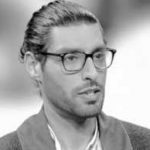
About Alnoor Ladha
Alnoor Ladha is co-director of the Transition Resource Circle and co-author of the book Post Capitalist Philanthropy: Healing Wealth in the Time of Collapse.
Alnoor’s work focuses on the intersection of political organizing, systems thinking, structural change and narrative work. He was the co-founder and Executive Director of The Rules, a global network of activists, organizers, designers, coders, researchers, writers and others focused on changing the rules that create inequality, poverty and climate change.
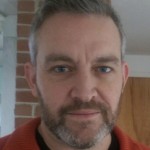
About Martin Kirk
Martin Kirk is Co-founder and Director of Strategy for /The Rules, a global collective of writers, thinkers, coders, farmers, artists and activists of all types dedicated to challenging the root causes of global poverty and inequality. Prior to /The Rules Martin was the Head of Campaigns at Oxfam UK, and Head of Global Advocacy for Save the Children. He has written extensively on issues of poverty, inequality and climate change, including co-authoring Finding Frames: New Ways to Engage the UK Public in Global Poverty to help bring insights from psychology, neuroscience, systems theory and other academic disciplines to bear on issues of public understanding of complex global challenges.
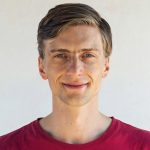
About Martin Winiecki
Martin Winiecki is a co-worker at the Tamera Peace Research & Education Center in Portugal, networker, writer, and activist. Born in Dresden, Germany in 1990, he’s been politically engaged since his early youth.

About Rhonda Fabian
Rhonda Fabian is Editor of Kosmos. She is an ordained member in the Order of Interbeing, an international Buddhist community founded by her teacher, Thích Nhất Hạnh. Rhonda is also a founding partner of Immediacy Learning, an educational media company that has impacted millions of learners worldwide for 35 years.
Ms. Fabian lives and is active in Transition Town Media, Pennsylvania. She is a grandmother, court-appointed special advocate (CASA) for abused and neglected children, and an NGO Representative to the United Nations for Kosmos Associates.




